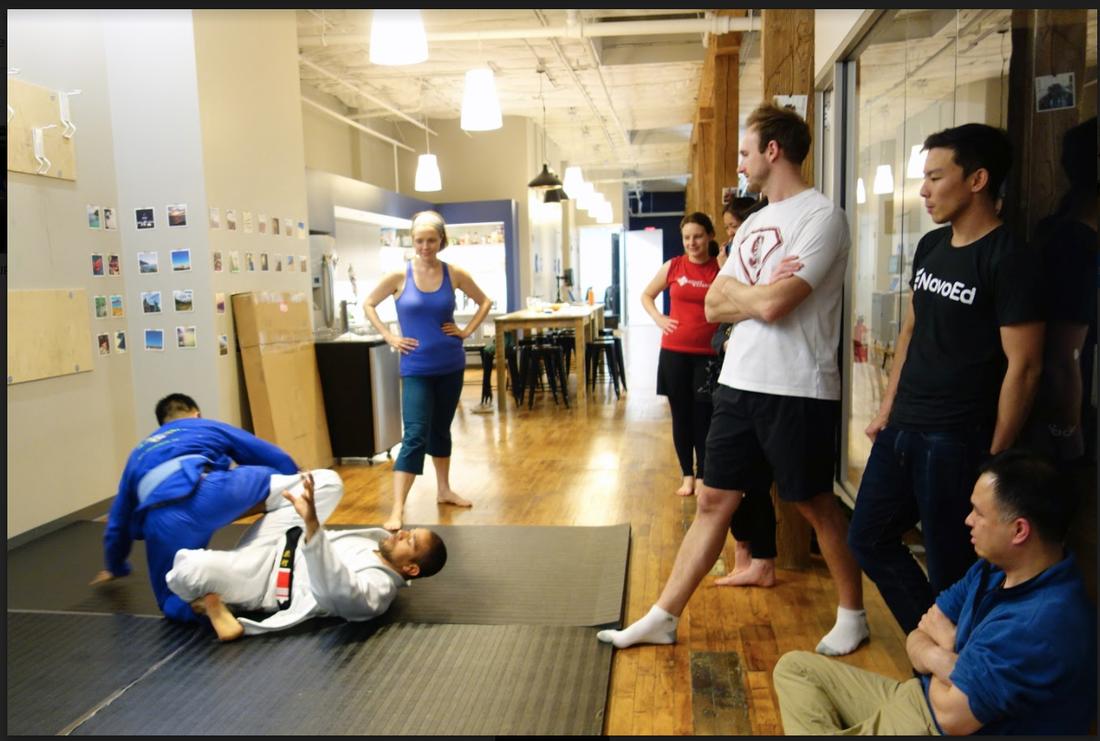
Self-defense classes are a great alternative for those who aren't comfortable in martial arts. The following article provides a brief description of different types of women's self-defense classes. Kung Fu, Taekwondo and Ronin Athletics are just a few of the popular options. You may be surprised to know that not every woman has felt vulnerable.
Kung Fu
Kung Fu self defence classes for women are great for women. Many women are drawn to martial arts for self-defense, but this style has some unique characteristics that make it especially useful for women. This style of martial arts is primarily focused on foot and hand striking. However, it also offers philosophy training that could interfere with practical fighting methods. Kung Fu, a long-term martial arts practice, is a good choice if your goals are to improve your self-defense and character, as well as personal development.
Taekwondo
Martial arts can give women the self-defense skills that they need to feel secure. These combat sports help women learn how to defend themselves naturally, and how to avoid dangerous situations. Women will be able to develop confidence, strength and awareness through the practice of martial arts. This is critical to survive any type of attack, whether verbal or violent. Taekwondo classes for women are a great way to learn how to protect yourself.

MMA
MMA classes for women's self defense are an excellent way to protect yourself against a potential attacker. Black Belt Instructors teach the practical techniques. MMA training is an excellent way to stay fit while learning effective self-defense techniques. Many MMA classes will teach women how to set boundaries, and then enforce them. These classes will give women the confidence to defend themselves.
Ronin Athletics
There are many good reasons to enroll in a self defence class. You'll not only learn self-defense skills, but you will also gain confidence. Ronin Athletics in New York City offers martial arts classes for everyone. Its mission is to foster an inclusive and positive mat culture. It offers classes in BJJ and karate as well as judo.
Williams Martial Arts
Martial arts classes for women can be a great tool to help you defend yourself. Attacks and crime are commonplace in our society today. While many people may believe that they can defend themselves, it is not true. Williams Martial Arts' class teaches self defense to women in realistic scenarios. Participants are encouraged to use self-defense skills in everyday life.

Girls' Fight Night
The gender gap in safety is being bridged by self-defense classes for girls. According to a recent study, only 62% of women feel safe walking alone in the night. That's compared with 89% of men. Many girls find these classes helpful, but one girl had a particularly frightening experience. Greenwich Police Chief Jim Heavey was contacted by the student who stated that she feared she was alone walking in a dangerous area and that her classmates were screaming for help.
FAQ
Is it true to say that protein overeating can lead to kidney stones?
Protein is essential for healthy bones and tissue. However, too much protein can result in calcium excretion through the urine. This can lead to kidney stones.
It is important to remember that not all people get kidney stones from eating more than 2g protein per kilogram (2.2lbs) of body weight. High amounts of protein can be consumed by some people without causing kidney stones.
By being careful with your sodium intake, you can prevent kidney stones. Sodium helps regulate water balance in the kidneys. A high level of sodium can increase the risk of developing kidney stone.
If you have kidney stone, you might also consider reducing your protein intake. About half of adults' daily caloric intake is made up of protein. You'll lose weight if you reduce your intake of protein.
If you do decide to eat more protein, don't go overboard. Do not eat more than 20% of your daily calories from protein.
How often should I exercise each week?
It depends on how much time you have available and what type of exercise you prefer. It's a good idea to do moderate-intensity aerobic exercises 3 - 5 times per week. It is important not to overdo it. It is crucial to exercise regularly in order to reap the full benefits of your workouts.
Which exercises are best for me?
It really depends on the type of fitness goal you have. Some people focus on endurance activities like running, cycling, and swimming. Some people enjoy lifting weights and using resistance bands. There are many options for exercise today. Select the one that best suits your needs.
Are There Any Benefits Of Doing Yoga?
Yoga has been popular since ancient times. It is now very popular among celebrities and even ordinary people who want to look fit and healthy.
Yoga is great because you can stretch your muscles and strengthen them. Yoga can also help calm your mind and relax you.
The primary difference between yoga and other forms is the focus on breathing techniques in yoga.
Practice a variety of poses to increase your flexibility and balance.
What is the best 7-day workout program?
A seven day exercise program should include cardiovascular training (running or biking), strength exercises (using freeweights, weight machines) and one flexibility/core workout. Each activity should be performed at least once each week. Each session should not take more than 45 mins.
Cardiovascular Exercise: Running/Biking/Swimming
Aim to do at least 60 minutes per week of cardio. Aim for 75 minutes per week to get the best results. Cardio exercise can improve blood flow and stimulate muscle development.
Strength Training
Cardio exercises target your heart and lungs. Strengthening your muscles and bones is the opposite. Strength training helps you burn calories even while resting.
Flexibility & Core Workouts
You can strengthen your entire body by strengthening flexibility and core exercises. Both yoga and Pilates can be great choices.
Is it possible to go to the gym every day of the week?
Yes, you could go to the gym seven days per semaine but not all at one time. You have to find a time where you can do this without feeling too exhausted and drained.
This will help keep you motivated and give you energy for other activities.
Also, ensure you eat healthy during these times. This will help you not feel tired or slow at the gym.
You must ensure that you don't have any other competing demands on your time. For example, if you have children, you may want to avoid exercising on school nights as they will distract you from your workout.
Statistics
- 10 pounds in a month is likely during a lean bulking phase, especially for beginners. (muscleandstrength.com)
- Are You One of the 20% of Guys (mh.co.za)
- Get free shipping and 25% off today. (healthline.com)
- Candidates and applicants must pass all four tests at 70% (minimum level) to graduate from Basic Deputy U.S. Marshal (BDUSM) Training. (usmarshals.gov)
- An estimated calorie range for moderately active adult males falls between 2,200 to 2,800 calories per day, depending on age. (eatright.org)
External Links
How To
How do I lose weight while working out?
Exercise burns calories by increasing metabolism and oxygen consumption.
At moderate intensity, you will lose weight easily.
These tips will help you burn fat and keep fit while exercising.
-
Cardio exercises can include running, walking, swimming or cycling.
-
You can exercise for 30 mins three times per week.
-
Add strength training to your workouts if you are looking to lose more weight.
-
Avoid intense exercise. It is possible to build muscle without destroying muscle tissue.
-
Hydrate well during exercise. Water helps flush out toxins and keep your body properly hydrated.
-
After working out, drink low-fat protein shakes. Protein shakes boost energy and repair muscle tissue.
-
Smaller meals are better for you.
-
Don't skip breakfast! Skipping breakfast can lead to fatigue and sluggishness.
-
Take care of your mind. Stressful situations can slow your metabolism.
-
Keep a positive attitude. Studies show that overweight people are more likely to be obese than those who perceive themselves as attractive.
-
Sleep enough. A lack of sleep makes it difficult to lose fat.
-
Always be active. Be sure to get up and move around every hour or two.
-
Maintain a healthy diet. Eat right to feel satisfied and full for longer.
-
Find ways to relax. A tense mind doesn't allow your body to release stress hormones that break down muscle tissue.
A balanced diet includes all essential nutrients needed for growth and development.
You should eat six small meals per day rather than three large ones. This gives your body time and energy to process the food.
To maintain strong bones, you need to consume 500 mg of calcium each day. Calcium can be found in dairy products such as yogurt, fortified soybean beverages, orange juice, cereals, bread, and cereals.
Calcium comes from leafy green vegetables, beans, tofu, nuts, seeds, and cheese.
Vitamin D is essential for calcium absorption. It's found in fatty fish, egg yolk, and some fortified foods.
Vitamin E is essential for skin health. Vitamin E can be found in vegetable oils as well as wheat germ oil, peanuts and almonds.
Your body requires zinc to function normally and for wound healing. Zinc can also be found in legumes, oysters, meats and whole grains.
Zinc deficiency may cause fatigue, loss appetite, depression, and impaired immunity.
Eating too much sugar causes insulin resistance, which increases blood glucose levels. Insulin resistance is linked to weight gain.
Insulin resistance occurs when the bloodstream is full of free radicals. Free radicals refer to molecules that contain unpaired electrons. They can damage cell membranes and other body parts.
Most free radicals come from pesticides herbicides, food additives, preservatives smoking, radiation, chemical in cosmetics, lotions and household cleaning supplies.
Free radical damage may lead to cancer, heart disease diabetes, arthritis, asthma and other conditions.
Antioxidants are essential for preventing free radical damage. Antioxidants protect against oxidative damage.
Vitamin C (found on citrus fruits), Beta carotene, found in carrots and sweet potatoes, spinach and broccoli, cantaloupe (found in tomatoes, mangoes and peppers), and Vitamin E (found nuts, olive oil and avocados).
Selenium, copper as well as manganese and zinc are some other antioxidant nutrients.
Selenium helps protect cells from oxidative damage caused by free radicals. Selenium can also be found in Brazil nuts (tuna), liver, kidneys and shrimp.
Copper protects the brain and eyes as well as the lungs and red blood cells. Copper is found in shellfish, poultry, meat, and organ meats.
Manganese plays an important role in bone structure. Manganese can be found in brown rice and spinach as well as bananas, prunes raisins, oatmeal, lentils, and oatmeal.
Zinc is required for normal growth, reproduction and wound healing. Zn can also be found in white fish, lean cuts of meat, poultry, and eggs.